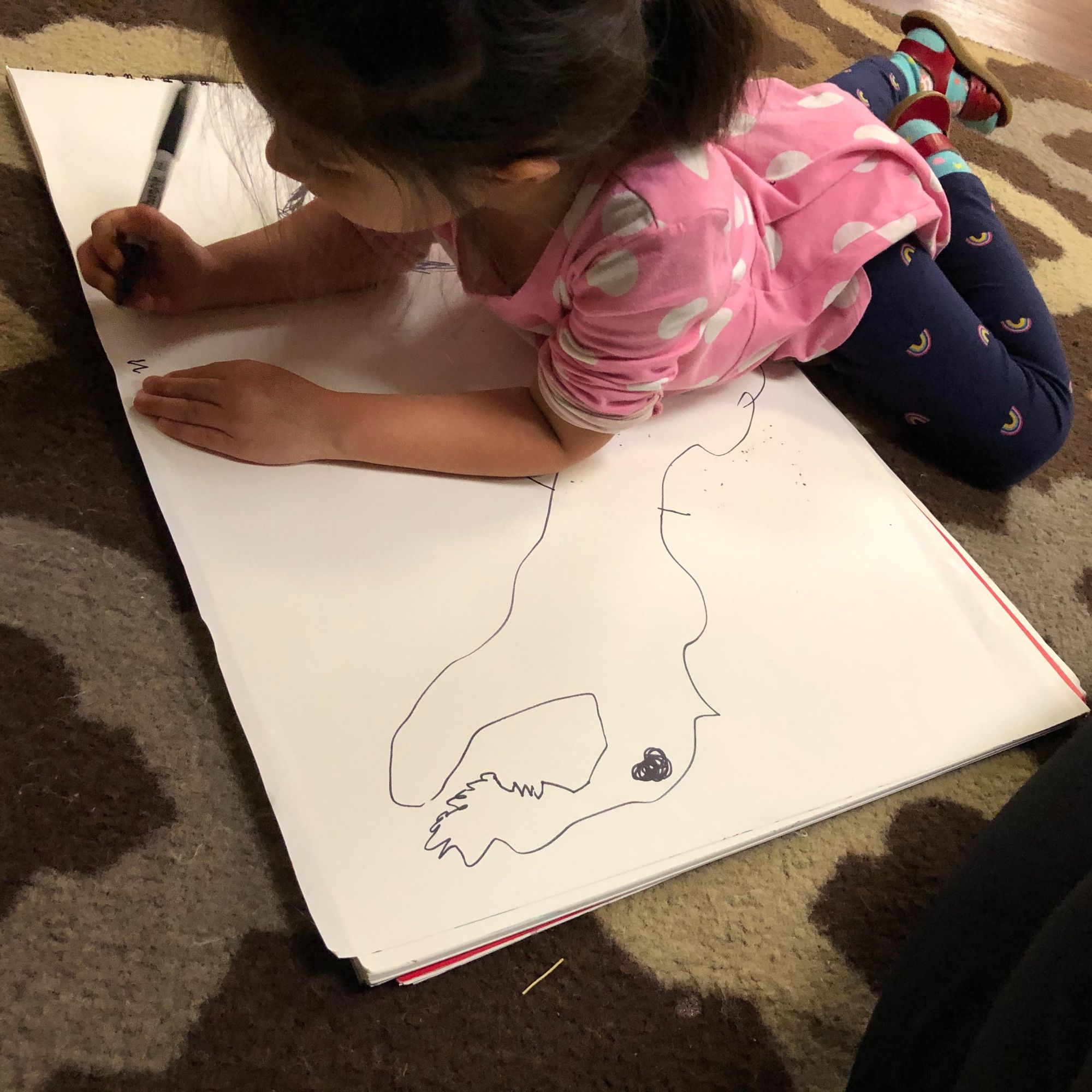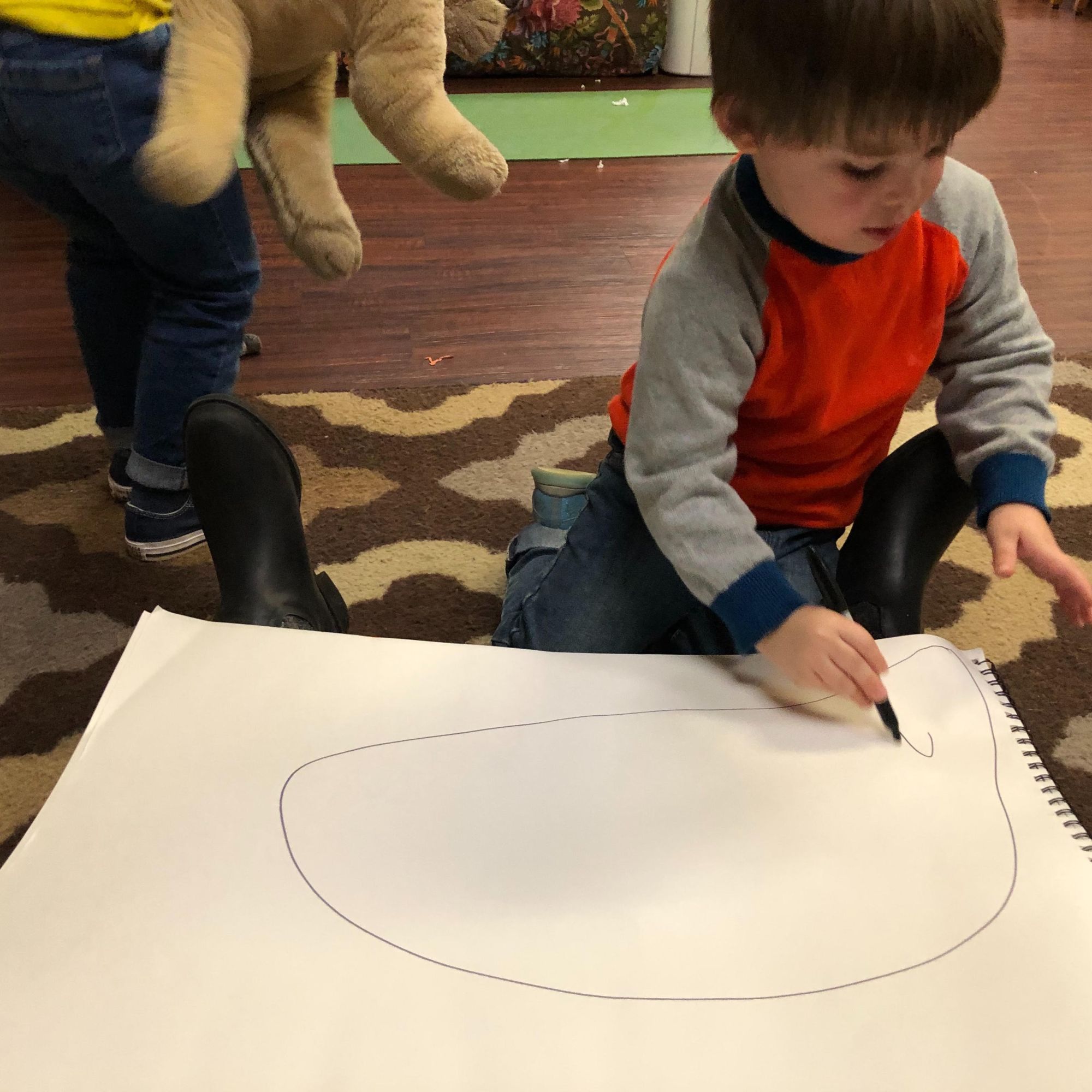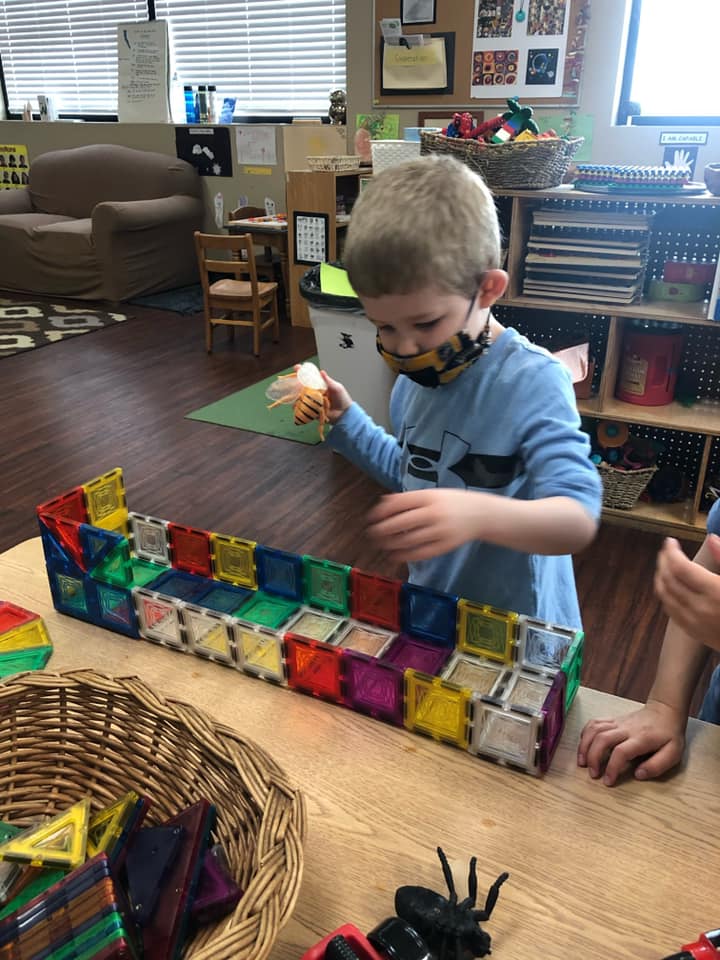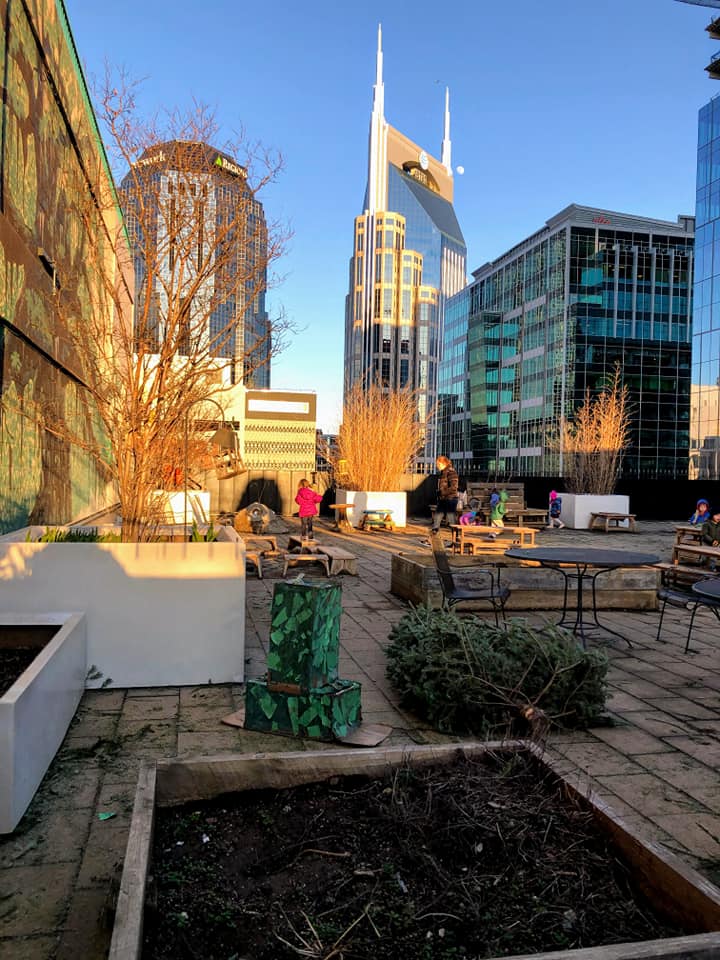At McKendree, we pride ourselves on being “Champions of Play” and you will find no stronger champions than our very own McKendree children! In our fast paced and overwhelming world, it’s more important than ever to remember how to slow down and allow children, and ourselves, time to explore, ponder, and PLAY. While we all know that play is important, did you know that it is one of the cornerstones of our philosophy as a play-based program? Play is not only about finding joy and having a good time, which is also awesome, but beyond that, there is a constant stream of learning that is occurring as children engage in both independent and group play. Play helps children build on prior knowledge while also having new and enriching experiences to clear the path for future learning. Research shows there are numerous benefits to offering ample unstructured, open-ended play opportunities for young children. Play allows and encourages children to learn how to negotiate, problem solve, share, and work cooperatively and collaboratively within groups. Play also encourages lots of practice with decision-making skills, and allows children to move at their own pace while discovering their own unique and shared interests, and unstructured play often leads to more active, physical movement and much healthier children. As you can see, play is about much more than just having a good time! So, let’s learn what McKendree kids already know and choose pure wonder and joy to become a “Champion of Play” for all!
From Surviving to Thriving
The story of the baby pumpkins on the roof


In the fall of 2019, we added a variety of mature pumpkins to our rooftop outdoor classroom. We treated the pumpkins as “loose parts”. The children moved them about, often working together to carry the heavy gourds from place to place. Some burst open after lots of man-handling, others rotted on their own. Needless to say, the birds who find refuge in our city garden delighted in the new food source. Eventually, the pumpkins melded into the landscape and gardens.
That is, until the summer of 2020 arrived. Then we noticed vines growing in interesting places: the flower beds, among the bamboo, around the fig plants, and in the garden beds. Before long, the mysterious vines were dotted with yellow and orange blooms as they cascaded through the vertical plants. One day a very observant two year old noticed a small orange growth at the base of a bloom.
“Baby pumpkins!” the youngster shouted, bringing others in closer for another look. Sure enough, the children, wind, and birds scattered the seeds from last year across the roof, and several took hold and became “volunteer plants”. So far, we have at least four small pumpkins dangling from the vines making our unconventional pumpkin patch even more special. When there is a will, there is a way!
Child Care During A Pandemic?
We shuttered our doors on 3/20/20 because of the coronavirus disease (COVID-19) and joined our city in sheltering in place for over 45 days. Working with guidance from our local health officials, child care licensing bodies, other community partners, and in accordance with the the guidance from the CDC, we made plans for a slow and careful re-opening. On May 4th we welcomed 23 children and 23 staff back to the center. The center definitely looks different than it did pre-covid, but one thing remains — the children’s engagement with caring educators, friends, and opportunities to explore and play.
A Downtown Forest!

Following Christmas, we encouraged families to bring their disgarded “real” Christmas trees to our outdoor classroom. A lovely early childhood program in Roseville, CA, Roseville Community School, began this tradition years ago with lovely play outcomes. We wondered what might happen when trees were added to the our downtown playscape.
Over a dozen trees, of all sorts, sizes, and species, soon dotted our rooftop garden area. Joyfully, the children began to explore these GIANT LOOSE PARTS by interacting with them. Children pulled, dragged, and propped the trees up — moving them across the space was a grand way to encourage cooperation as children negociated with one another to get the job done. There was also an interest in being ON the trees.

“The Jail Game” and Children’s play with POWER


Children in the Researchers Class have recently invented an interesting dramatic play game they call, the “Jail Game”. Scholastic Parents writes, “Good guy versus bad guy play is a natural part of your child’s social and moral growth. Indeed, it’s common for dramatic play to center around themes of good and bad, friends and enemies, power and vulnerability, particularly as young children work to learn the difference between right and wrong, to understand rules, and to control their impulses. Power play helps them make sense of these confusing issues and gain a better understanding of themselves and their place in the world.“



In addition to playing the game and assuming roles, the children were eager to explain the game and sketch their ideas. Upon pick up, the documentation of their ideas offered the opportunity to share their emerging ideas and understandings with big brothers and parents.

Many thanks to Liz Davis, educator in the Researchers Class, for recognizing the value of child-led play. Liz captured these children involved in important work as they grapple with moral learning.












